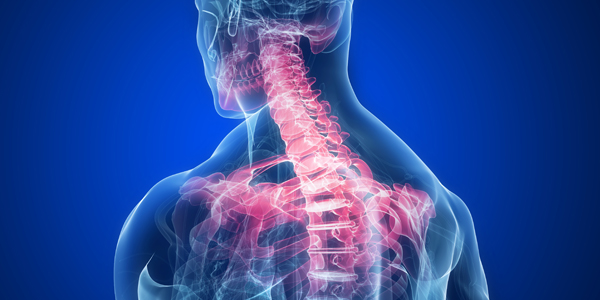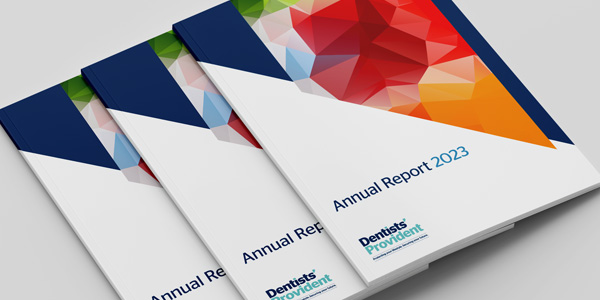
In this third article in the series of the pressures and issues experienced at dental school and after graduation, the focus is on prevention of musculoskeletal (MSK) and mental health issues.
Introduction
Dentistry is considered by many to be a stressful profession; you are extremely reliant on your physical and mental wellbeing, from the excellent functioning of your eyes, back, hands and feet to your patient, calm considered nature and quick thinking. This pressure never really relents throughout your career.
If you read the first two articles in this series, you will be aware of the extent of the problems in terms of the number of students experiencing MSK and / or mental health issues while at dental school and beyond. Some dental schools are better at incorporating time in an already stretched curriculum to fit in sessions that support better posture or have the tools to deal with the pressure of keeping up with the late-night studies, passing exams and learning how to deal with patients in a live environment. The consistency of this approach, however changes around the world.
For example, a Croatian paper in 2016 looked at the occurrence of many of the potential occupational risks that dental students and dentists ultimately face. They noticed that these caused harmful habits such as smoking, drinking and a lack of physical activity. They looked at each area of occupational risk individually to find a workable solution including examining individuals’ exposure to biological, biochemical, physical and psychological issues. As a result of this study they introduced a new course into the dental curriculum entitled ‘Occupational diseases in dental medicine’ that included ergonomic education and stress management techniques.’ It has made a significant difference to the students.
Interestingly, a student from Birmingham dental school wrote in The Probe magazine during the summer of 2019 about the pressures of dental school with late night studying due to a fear of failure and how she neglected her health and wellbeing. She also commented that they were bombarded with being told how the stresses would increase once in practice but felt these would just be different to those experienced at dental school. Positively, she did say that although there wasn’t a great deal of support at the time, her dental school have now introduced some resilience training, recognising the pressures within university.
Clearly it is important for the future of the dental profession to have consistency throughout the UK dental schools and to campaign for a more structured preventive approach to combat potential issues with an increased awareness and understanding of the coping mechanisms available at undergraduate level would better support the profession going forward.
Prevention of MSK issues
As a dental professional it is important to work on your posture, flexibility and strength, whether you do Pilates, yoga, the Alexander Technique, team sports, go to the gym or just do your own routine of static and dynamic stretches and exercises (you can search the internet for stretches, exercises and back care advice for dentists). Research shows that muscular endurance, resistance and aerobic training can help dental professionals reduce work-related pain. Some daily stretches can be done in the few minutes before or after surgery or university, such as core strengthening exercises that work your abdomen and back muscles to help strengthen your back, supporting good posture. Simple stretches such as shoulder rolls, child pose, cat stretch, roll downs, hip flexor stretches, knee hugs or rocking your knees from side to side can be done every morning and evening and could reduce tension and stress in your muscles. Other simple exercises such as bridges, side planks, wall sits, leg raises, squats and lunges could all improve your flexibility and strength. Where they were to form part of your daily routine when you are young, it could be an effective preventive care programme to help to protect you for the duration of your career.
Loupes: while it is important to get the correct posture whatever your equipment, loupes and their magnification have been shown to help to get a closer view of your patient without having to bend your back or strain your neck and shoulders.
Assess your stool and seated position: sitting with a good posture at all times and supporting it with a stool, or a saddle seat, with arms and a back if you need them, could help to reduce pain and tension. Your feet should be positioned flat on the floor, with your knees gently sloping from your thighs at around 90 degrees. You should also bend forward from your hips and not your spine to maintain your posture and protect your back. It is also important to make sure your patients sit at the correct height also, or your phantom head is positioned correctly, so that your shoulders are relaxed and your forearms are parallel with the ground, trying to make sure you move appropriately and not staying seated in a static posture for too long.
Prevention of mental health issues
There are many personal techniques that can help to prevent the feeling of stress and your reactions to it. They include meditation, mindfulness, as well as the Alexander Technique and yoga. It’s important to try and find what works for you, and learn to identify your triggers or the first signs of stress, then stop and take positive, healthy action. Whether it’s to go for a run, have a hot bath or listen to music – basically do whatever works for you as early as you can.
It is also important to have a positive network of friends or family outside of dental school/practice, as well as having engaging hobbies that can give you physical or mental relaxation. Taking the time to relax, go on holiday or just take a break. As it is important to try not to put yourself under too much pressure, and learn to find ways to switch off and take a step back from thinking and talking about dentistry.
Whatever stage you are at in your career now, take the time to think about whether you have a preventive approach to your physical and mental health and wellbeing, and that you keep an active lookout for early signs of stress or pain. If you look after yourself and protect what is important, you could be set for a long, pain-free and fulfilling career.
References available on request.
This article is intended for general information only, it is not designed to provide financial, health or other advice, nor is it intended to make any recommendations regarding the suitability of any plans for any particular individual. Nothing in this article constitutes an invitation, inducement or offer to subscribe for membership or additional benefits of Dentists’ Provident.
No responsibility or liability is assumed by Dentists’ Provident or any copyright owner for any injury or damage to persons or property as a consequence of the reading, use or interpretation of its published content. Whilst every effort is made to ensure accuracy, Dentists’ Provident, the authors, Editors and copyright owners cannot be held responsible for published errors.
Dentists’ Provident exercises editorial control only over material published and/or produced by it. No responsibility or liability is assumed by Dentists’ Provident for any articles produced or reproduced in third party publications and/or websites.
The views or opinions expressed do not necessarily reflect views of Dentists’ Provident or copyright owners. Inclusion of any advertising material does not constitute a guarantee or endorsement of any products or services or the claims made by any manufacturer.
If you have any questions, please contact our member services consultants by emailing press@dentistsprovident.co.uk or calling 020 7400 5710.
If you have any questions, please contact our member services consultants by emailing
memberservices@dentistsprovident.co.uk or calling 020 7400 5710.

Our 2024 Annual General Meeting will be held at 91-94 Saffron Hill, London, EC1N 8QP on Friday 24th Ma…
Read more
The 2023 annual report from Dentists’ Provident, a leading income protection provider for dental profe…
Read more
Our next exhibition is the British Dental Conference & Dentistry Show in May, where we look forward to meeting anyone interested in becoming a member or members wanting to discuss their plans.